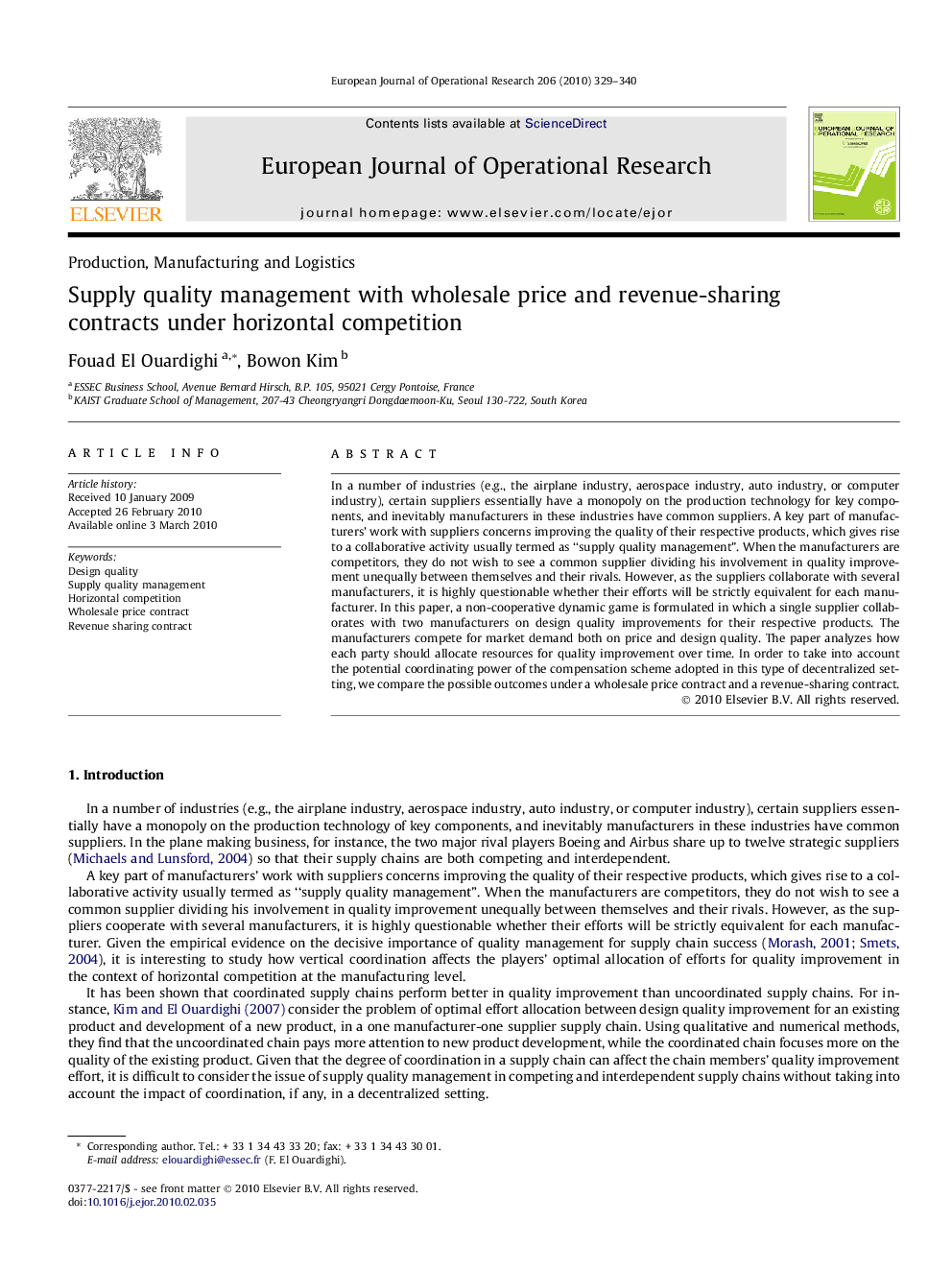| Article ID | Journal | Published Year | Pages | File Type |
|---|---|---|---|---|
| 478655 | European Journal of Operational Research | 2010 | 12 Pages |
In a number of industries (e.g., the airplane industry, aerospace industry, auto industry, or computer industry), certain suppliers essentially have a monopoly on the production technology for key components, and inevitably manufacturers in these industries have common suppliers. A key part of manufacturers’ work with suppliers concerns improving the quality of their respective products, which gives rise to a collaborative activity usually termed as “supply quality management”. When the manufacturers are competitors, they do not wish to see a common supplier dividing his involvement in quality improvement unequally between themselves and their rivals. However, as the suppliers collaborate with several manufacturers, it is highly questionable whether their efforts will be strictly equivalent for each manufacturer. In this paper, a non-cooperative dynamic game is formulated in which a single supplier collaborates with two manufacturers on design quality improvements for their respective products. The manufacturers compete for market demand both on price and design quality. The paper analyzes how each party should allocate resources for quality improvement over time. In order to take into account the potential coordinating power of the compensation scheme adopted in this type of decentralized setting, we compare the possible outcomes under a wholesale price contract and a revenue-sharing contract.
